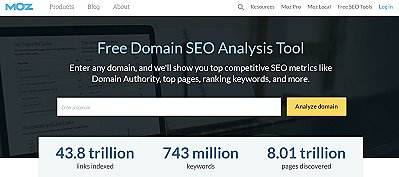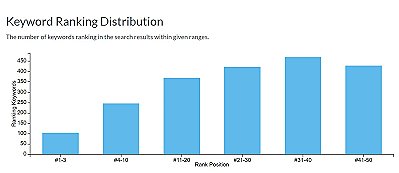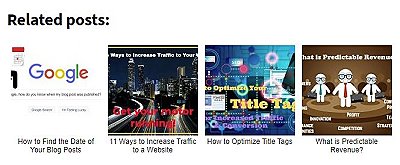by Kurt Scholle

What is Domain Authority?
Can Small Websites With Low Domain Authority Outrank Large Sites?
Domain Authority (DA) is a concept based around language inside one of Google’s original search patents. Famously, Google coined a phrase known as PageRank to describe its proprietary measurement of a website’s authority on a topic and credibility to rank that content accordingly.
Google claims to not use it anymore for ranking, but it may be useful for other reasons.
Basically, Domain Authority is a similar score to PageRank, created by SEO Moz. It’s a search ranking score ranging from 1-100, with 100 being perfect.
Domain Authority is a prediction of how well a website may rank on search engines.
Some compare domain authority to the thought leadership of a website. It can also be described as the prestige of a website and its authors. It’s an indication of the quality of the information being presented.
Domain Authority between 40 and 50 is considered average. 50-60 is good. Anything 60+ is excellent.
SEO Moz says “Domain Authority is not massively important for some search queries but might be a major factor for others.”
There are 40+ metrics in the Moz algorithm. Here are some of the most important.
Linking Root Domains: More links from more unique domains is a better than many links from fewer domains.
Link quality: Moz uses both MozRank and MozTrust to rank the quality of external links to a website. As with Linking Root Domains, quality trumps quantity. MozRank uses a scale of 0-10 (10 being best). The average MozRank rating for websites and blogs is 3.
Page Authority: The composite scores of all pages on your site contributes to the overall Domain Authority of the site.
Social Signals: Google has used links, shares and comments as ‘votes’ in thms for years. Moz uses the same types of signals as part of their Domain Authority algorithm; Twitter Retweets, Facebook Likes and LinkedIn Shares to name a few.
What is Domain Authority and does it matter? Domain Authority between 40 and 50 is considered average. 50-60 is good. Anything 60+ is excellent. Share on XHow to check Domain Authority.
Moz offers a free domain analysis tool that you should bookmark and use on a regular basis. Not only will it report your Domain Authority, it will show your top pages and ranking keywords. Click here to try it.

You can check a couple of domains for free and even more when you sign up for a free trial of Moz Pro.

You can also check Domain Authority using SEO Review Tools.
What is Page Authority?
Page Authority is similar to Domain Authority and is also scored on a 100-point scale, including Social Signals, Linking Root Domains, the quality of the links and the number of external links pointing to the page.
Page Authority contributes to the overall Domain Authority of your site.

How to Increase Domain Authority
Raising your DA takes time. Everybody starts at 0 and moves up.
Since backlinks are such an important component to DA, you should look at your backlink profile on a regular basis.
Here are 10 ways to increase your domain authority.
1) Improve Page Authority. DA is based on the composite scores of all pages on your site, so the best idea for how to increase Domain Authority is to improve the sum of the parts. Identify and revise the pages with the lowest PA. Get more links. Improve the quality of the links. Get more shares. Sometimes improving the content of each page will result in more links and shares.
2) Mobile Friendly. Google is now using Mobile-First indexing, so if your site is not responsive, you will pay the price in Domain Authority and search engine rankings.
3) Page Loading Speed. Google is also putting a premium on page loading speeds, especially on mobile. Test yours with Google’s Page Load Speed Test. or the Pingdom Website Speed Test.
There are many reasons why websites can load slow. Both tools will make recommendations on how to speed up a pokey website. More on that here.
4) Domain Name. Exact match keyword domains used to be a top ranking factor in Google, but not so much anymore. Still, it’s thought that there are benefits to including a keyword in the domain, both for the search engines and recognition by human searchers.
Some people buy old domains to build new websites with. There is some benefit to using a domain that Google has known about for a period of time. Just make sure it was a good operator with no history of spamming or malware distribution.
Google also favors a registration commitment to domains – the more years, the better. Try and be registered a minimum of 3 years into the future.
5) Optimize Page Content. Similar to improving Page Authority, optimizing each page’s title tags, image ALT-tags and the content itself will help improve both page and domain authority.
Longer content tends to outperform shorter content. Longer content gives you more opportunity to to target similar content and related keywords that makes your article more comprehensive. It is not unusual for Domain Authority to soar with a lot of “Guide” content.
6) Create Linkable Content. What can you post that people will want to link to and share? Andy Crestodina’s Orbit Media in Chicago publishes ORIGINAL content from their annual survey of web development and blogging. They get TONS of links to their articles and related infographics.
Moz’s Rand Fishkin always recommends asking “Who will amplify this?” before creating any type of content. If you keep that in mind, you will know how to increase Domain Authority on a regular basis.
We teach content creation incorporating the insights of both Andy and Rand in the Website Success Essentials course.
Infographics are also very linkable.
Some people use their personality to create linkable content.
7) Better Internal Linking. This is often overlooked! Cross-linking related content, especially SILO content creates a more comprehensive experience and Google keeps track of how many pages people view on average or how much time visitors spend on your site. Use keyword-ralted anchor text to help signal to Google what the content is about. Don’t overuse the same anchor text – mix in some variables.
In addition to text links, consider using related post plugins for a more graphical appeal. Here’s an example of what I use on my blog.
8) E-A-T. In the past few years, Google has put more emphasis on their E-A-T algorithm. I write more about it here.
Google rewards Expertise, Authority and Trust for the article author and the publisher of the site. You may want to share your education or credentials in resource boxes of individual posts or as part of the site’s About page.
I like to link to sources that help define me as an expert in my field, such as teleseminars or webinars I appear on. I even found a list of Top Digital Marketers of 2014 that I appeared on.
In addition, guest posting on other sites can help build your brand, both for prospects and your DA.
9) Review Outgoing Links. You should periodically review your outbound links to make sure content that you’ve linked to is still there. Google will penalize you for broken links.
We’ve used a plugin called Broken Link Checker to monitor links on many blogs. The plugin will send you an email when it finds a broken link. In one case we were notified of a link on a client site pointing to a disgusting x-rated site before much damage was done.
10) Be Social! Social signals are ranking factors so you need to prime the pump. People may find you on social media and may end up sharing it or linking to it. Share it often!
Another good practice is to use social sharing buttons and plugins like Better Click to Tweet.
Can small websites with low domain authority outrank larger ones?
Yes!
Here’s how… On average, the smaller publishers generally wrote longer form content that dove a little deeper into specific topics. Additionally, many of the smaller publisher results included titles with the phrases “how to” or “who is”.
30 small/medium publishers that compete in Alexa top 1k:
1) Content was 23% longer.
2) Titles included the words “How to…” “How do…” and “Who is…”
In Conclusion.
Building Domain Authority may seem daunting at first and it does take some effort. But it can have a significant impact on your search engine rankings, which will give you a competitive advantage over your competitors who do not work to improve their DA.
Some SEOs recommend that bloggers only compete with others with similar DA. As your DA rises, identify new competitors with similar DA.
How do you improve Domain Authority? Remember to…
Work on your links, both external and internal.
Make sure your site is mobile friendly and loads quickly.
Optimize your posts for SEO.
Create linkable content.
Promote it socially.






